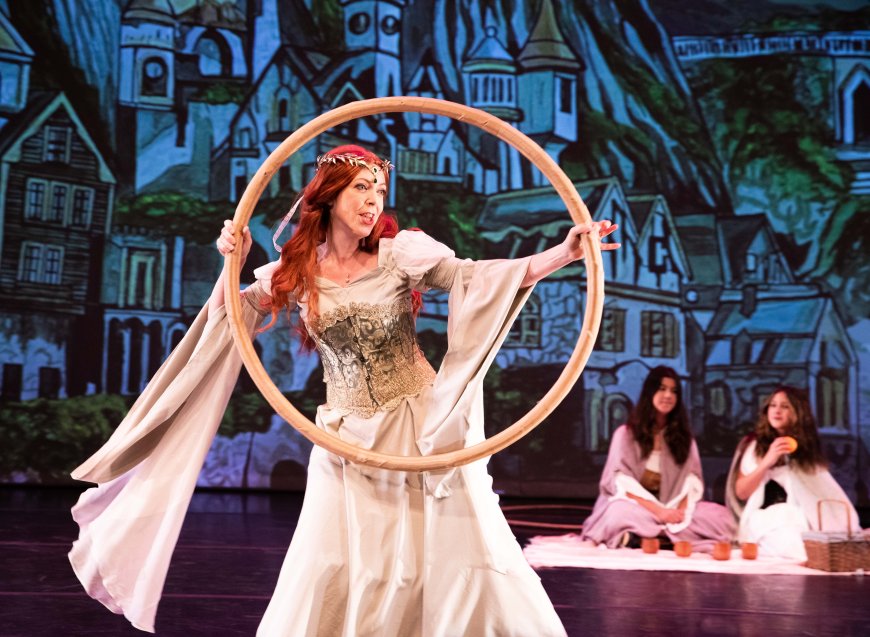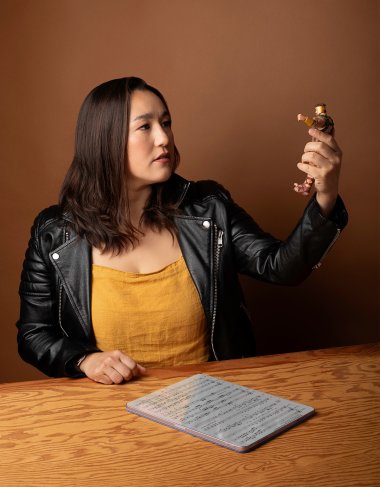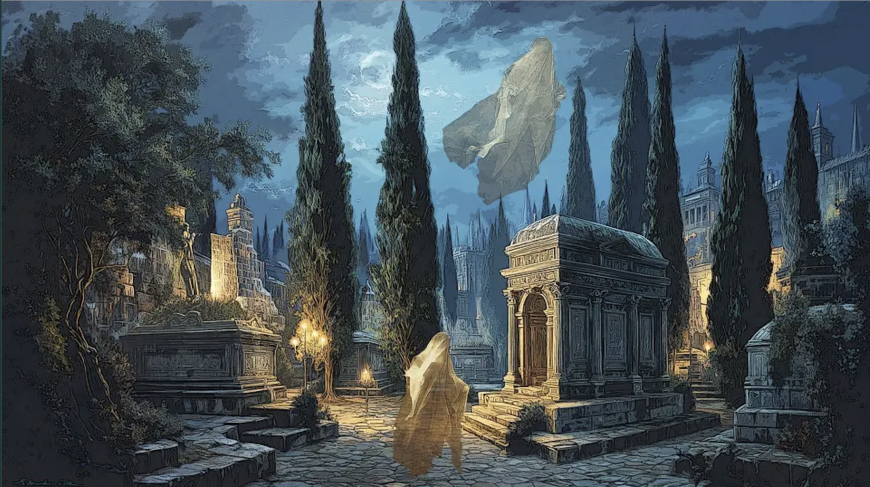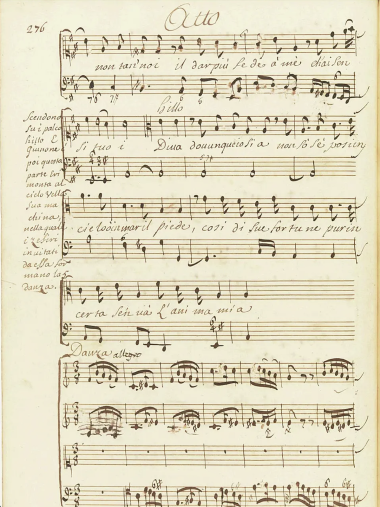
Few operas wait centuries for an audience, but after 318 years, Antonia Bembo’s Ercole amante, is about to get its first staging, thanks to San Francisco’s Ars Minerva.
It’s a remarkable coup for the Bay Area company, known for reviving Baroque rarities. Their performances of Ercole amante (Hercules in love) on Friday-Sunday, Nov. 14-16, will come roughly six months before a staging at the mighty Paris Opera. "Erocole amante" was previously performed in concert in 2023, in Germany, by Il Gusto Barocco, but Ars Minerva's performances will be the world premiere staging.
Under the direction of founder and Executive Artistic Director Céline Ricci, Ars Minerva is currently rehearsing Ercole amante, which was composed in 1707. The production will offer a rare opportunity to see an early opera composed by a woman, one that was very likely never performed in her lifetime.
Born Antonia Padoani in Venice in 1640, Bembo studied music with composer Francesco Cavalli who wrote his own Ercole amante in 1662. She married Lorenzo Bembo, a Venetian noble, who abandoned her and their three children while he went on a five-year military campaign, leaving them with no means of support. She took her husband to court seeking a divorce, but lost.

She eventually left her husband, sent her daughter to a convent and fled to France with her two sons. Once in Paris, she sang for King Louis XIV and so impressed him that he granted her a pension and living quarters with a religious community.
The surviving six volumes of Bembo’s music are now housed in Paris at the Bibliothèque nationale de France (National French library).
Ricci relates the plot to Bembo’s life and the abusive relationship she endured.
“It's really striking to me,” Ricci noted. Speaking as the composer, Ricci went on to say, “I'm writing about that abusive man (Ercole), and I'm the master of the game.”
As with many tales of gods and mortals, Ercole amante teeters between grandeur and absurdity. This story centers on an already-married Ercole falling in love with Iole, who is engaged to his own son, Hyllo. What begins as a forbidden infatuation spirals into divine meddling and, eventually, bloodshed.
Ricci considers the work a tragicomedy, a mix of dark emotion and odd humor. She added that Bembo set the same libretto by Francesco Buti as Francesco Cavalli’s Ercole amante, a version treated as a tragicomedy in modern productions.
“There's a lot of awkward moments here, because Ercole is in love with a woman who's in love with his son. The audience is well aware of what's going on, but the characters aren't,” explained Matthew Dirst, the opera’s harpsichordist and conductor. “There are the usual Baroque layers of deception and intrigue.”

Ercole amante incorporates both French and Italian musical styles, which Ricci reckons is because Bembo was Italian but spent about half her life in France.
“She was at a peculiar place in music history when opera was still relatively new,” said Dirst. “It had been around in France for maybe 30 years by the time she wrote this piece. And the French had borrowed the genre from Italy.”
Dirst noted Bembo’s teacher, Cavalli, helped introduce opera to France in the 17th century. But when Cavalli brought his Italian style to Paris, Dirst added, Cavalli “had to suffer the indignity, or the collaboration, of working with French people who wanted to insert French-style dances into his operas. Those operas are a compromise between the two styles, with Italian declamation and aria forms, plus these lavishly scored French dances.”
Ars Minerva’s Ercole amante will nod to that hybrid spirit, though without a full dance troupe. Instead, Ricci said “there will be some character dances from singers and some other activities during the dancing moments.”

The production will also feature charming projections based on early 18th century theatrical designs.
To keep the performance to a brisk two hours, scenes set in Hades were cut because they would have been difficult to manage in terms of staging requirements and casting. “Paris and other major houses can afford stage machinery, the equivalent of film special effects,” Ricci said. (Performed in full, the piece would run between three and four hours. Paris Opera expects its upcoming production to take about three hours and 40 minutes.)
Nonetheless, Ars Minerva has crafted a robust production featuring a cast of nine singers, each with several short arias that together bring Bembo’s intricate story to life.
“This is a remarkable thing, that the score survives in such good shape, and that it's such a strong piece of music,” said Dirst. “I think that makes it eminently worthwhile for anybody who's curious about this kind of work.
“And Celine's productions are always riotously funny and a good time.”
Lisa Hirsch is a freelance writer. This article has been provided in partnership with the San Francisco Chronicle.




